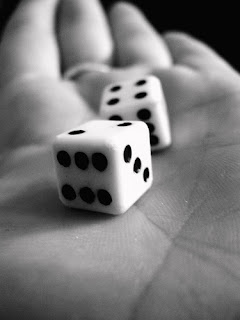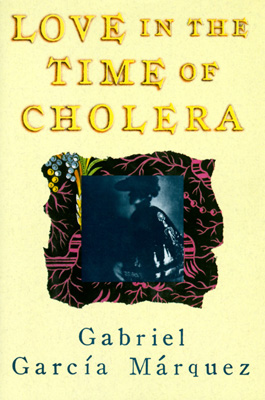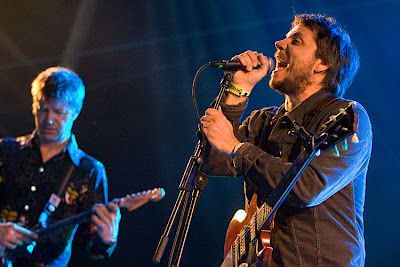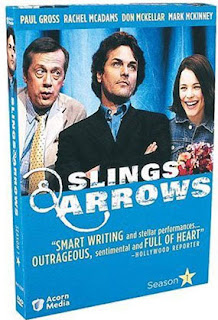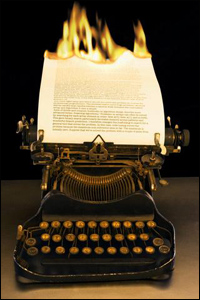A comment has been bothering me for the last week. It was made by a screenwriter who wrote a play that a famous star saw and produced into a movie (this was years and years ago so don’t try to guess who it is).
This person said, and I’m paraphrasing here, that “plays are not as structured as movies”.
The screenwriter also said that most plays don’t become good movies, which I have to agree with as a generality (did they have to make
Closer and
Proof so palatable?). However, I do think there are some really great plays that became very famous and well-known movies (I wonder how many people know that
Casablanca was actually written as a stage-play when the studio bought the rights?). Some good examples of those writing for both stage and screen are David Mamet, Craig Lucas, John Patrick Shanley, Tony Kushner, Neena Beber, William Mastrosimone, Theresa Rebeck and Kenneth Lonergan.
But that’s a whole other blog topic.
And by the way, this screenwriter is
not one of those people…
My real beef is this person seems to believe that the majority of the work in screenwriting is developing the story, creating a tightly-woven plot with fully developed characters and subplots woven in, whereas the majority of work in playwriting is just…dialogue. Or something. Evidently plays are not thought-out stories…Actually, I’m not really quite sure what this writer means by saying that screenplays are more structured.
Because here’s the point…no matter the medium, they are both stories told in dramatic form. Now, obviously they are completely different mediums…like the difference between painting and sculpture.
My initial “a-hole” response to the comment was “Wow, you must write some really bad plays…”
Because years ago when I first started writing plays I used to think plays weren’t structured much. I’d hear characters say lines of dialogue and off I went, wherever the story took me.
Those plays were bad.
(Not that I’m sorry to have written them because its nice to get all that bad stuff out of the way and then recognize it when it tries to infiltrate my work again.)
I don’t write plays like that anymore and I’m pretty sure that Edward Albee, Tony Kushner, and David Mamet do not, as well.
Bad playwrights write like that. But guess what,
so do bad screenwriters.
Good playwrights work the story out, sometimes in their heads (or so says master Albee) and sometimes in outline form. Sometimes its just notes on a napkin. But playwrights, good playwrights, are master storytellers. Just like good screenwriters.
What I think this screenwriter might’ve been trying to articulate (and what the hell I’ll just speak for this moron), is that plays and movies are different because one is
HEARD and the other is
SEEN.
Maybe not as much anymore, but theatre (I use the French spelling on purpose because I have a master’s degree and they’ll take it away if I don’t…seriously...)…theatre began as an oral (aural) tradition and has remained so from the Greeks through the time of Shakespeare up to today. We go to the theatre to hear words coming out of live actors. This does not mean that spectacle doesn’t happen (who can ever forget the chandelier in
Phantom?) but it means that we listen much more closely then we realize. Master playwrights use brilliant dialogue to convey the story, rife with its emotions and baggage. Pinter and Beckett can do more with two words than most playwrights can do with two thousand.
Movies, on the other hand, are visual. That’s why they’re called
MOVING PICTURES. The story is told in pictures. The actors are nice to look at (how many ugly stars can you name?). The sets and background are detailed and the more exotic locale, the better. The important thing to remember, though, is that dialogue is completely unnecessary. It’s nice to have some good lines here and there, but you don’t need it to tell the story on film. Some of the best movie moments are visual. That’s the design of the medium. Seriously, read the script for
Titanic—a movie that blew away the box office and won an Oscar. It contains some of the most atrocious lines ever. But the visuals…can’t be beat.
That doesn’t mean all movies have crappy dialogue. Woody Allen mastered the art of mixing neurotic witticisms against beautiful Manhattan backdrops. Most romantic comedies have a mixture of funny lines and funny physical bits (with very good-looking people).
So this is why a Shakespearean actor can proclaim on a bare stage: “Welcome to the forest of Arden” and BAM! The audience is instantly transported.
To do that in a movie, you need a real forest. You need to film it in Yosemite and you better have a great cinematographer to convey the type of trees the audience sees.
But it doesn’t matter what forest you’re in…You need a good story. And a good story is well-structured. That’s what makes it a good story.
Every great play is carefully constructed (some more so than most screenplays, I would say.) If you doubt that, take a closer look at Ibsen and Chekhov and Shakespeare, just to start. Then read some Shaw. Then read some modern plays like
American Buffalo or
Lobby Hero.
One of my favorite plays,
Waiting for Godot, is a structural jewel. You won’t see it at first glance, but its there. Some critics have said nothing happens, but look closer and you’ll see a chain of events, an inevitable sequence leading to a justifiable conclusion.
It wouldn’t make a great movie, though, let’s face it. And I’ve seen some try.
Two guys waiting on a road...talking a lot…nah…put in
Titanic again…
